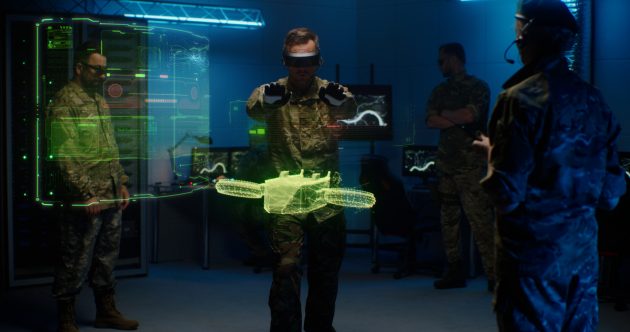
Adoption of game engines expedites usage of commercial gaming in defense training and simulation
by CM Staff
The decline in live training has highlighted the need for live, virtual, and constructive (LCV), joint, and collective training strategies, finds Frost & Sullivan

training and simulation
SANTA CLARA, Calif. — As the commercial gaming market continues to expand, a growing number of products will become useful to the defense industry and military customers. Frost & Sullivan’s recent analysis of the defense training and simulation (T&S) market finds that game engines are one of the most significant uses of commercial gaming within defense. Courtesy of their ease of use and ability to function on a wide range of platforms, game engines have been increasingly adopted by the industry to aid in the development of simulations.
“The decline in live training has highlighted the need for live, virtual, and constructive (LCV), joint, and collective training strategies,” said Alexander Clark, Senior Research Analyst, Aerospace & Defense Practice, Frost & Sullivan, in a prepared statement. “Owing to disruptions in training routines and limited access to simulators, certain military units have taken to adopting specific commercial games for practice and the maintenance of certain skills.”
Clark added: “With global tensions on the rise, the use of virtual elements will decrease physical presence in areas of high tension and reduce the possibility of escalation. Evolving trends such as the focus on asymmetric and hybrid warfare, the need for deployable training solutions, and rising momentum of operational deployment will further fuel the demand for portable and customized defense T&S solutions.”
Commercial gaming market participants can capitalize on lucrative growth prospects through:
- Adoption of commercial game engines: Defense companies will find it advantageous to partner with commercial game engine developers to enhance their simulation capabilities.
- Augmented reality (AR) and virtual reality (VR) applications: The use of AR and VR game engines within defense is likely to be one of the key routes for commercial game companies to enter the defense space outside of developing specific AR and VR applications.
- Target research organizations and bespoke requirements: Companies looking to expand their portfolios outside the commercial domain should engage with research organizations as they are increasingly investigating the use of gaming within defense and developing bespoke applications.